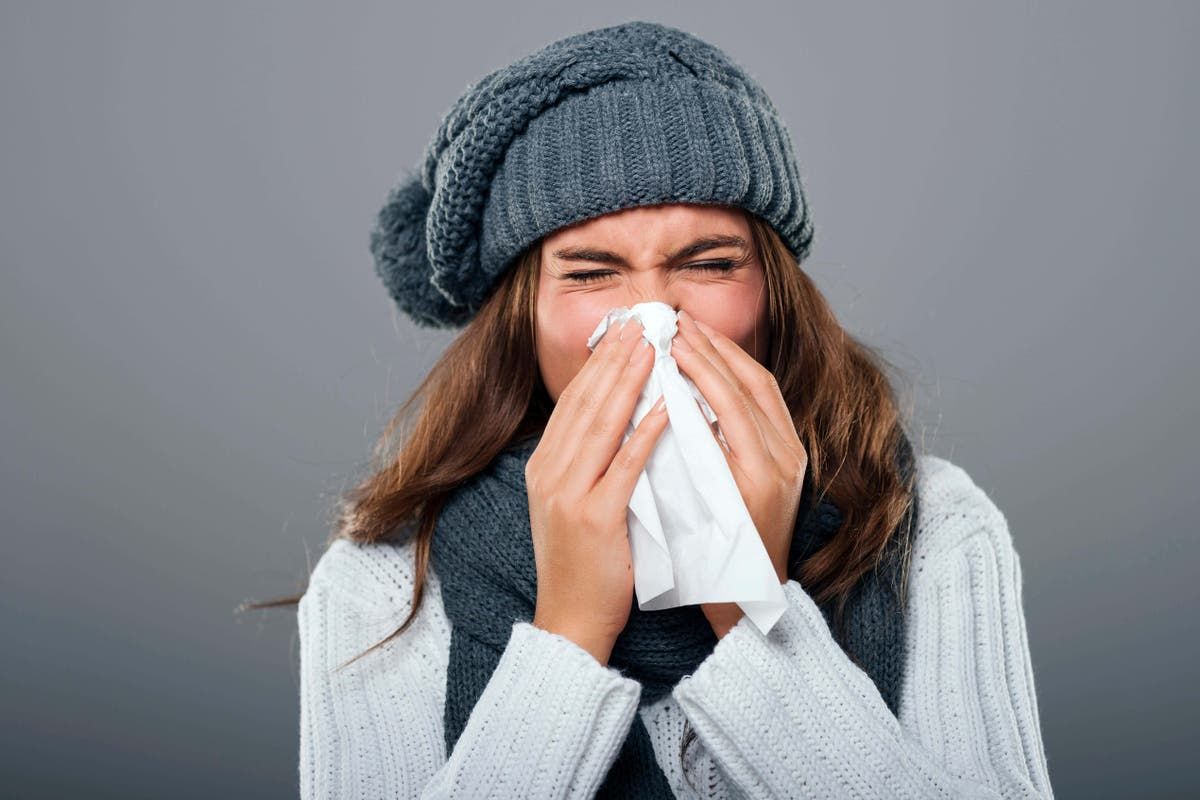Do you feel like you've had enough of sore throats, coughs and congestion this winter? Colds may be common and minor, but they can still make you feel terrible, not to mention they can be a major inconvenience.
It's not really something you want to go to the GP's office with either, but wouldn't it be useful to know what your doctor really thinks about managing winter ailments? We ask them…
Getting sick is not always terrible
Nobody likes having a cold, of course. But Dr Hilary Jones, GP and television doctor, known for her regular appearances on Good morning Great Britain – says we can’t always “prevent exposure to viruses, especially in winter when people gather to stay warm indoors.” And if the symptoms are mild, we probably don't need to worry too much.
“Let your own immune system take care of it,” says Jones. “That's what the immune system is for, and on the positive side, the more the immune system is stimulated, the healthier it is. In a way, you are boosting your immune system to be healthy.”
Antibiotics can be harmful if you don't really need them
If symptoms become more difficult to tolerate, it may be tempting to try antibiotics. But while there are times when antibiotics are vital, they only work for bacterial infections, so taking them when you have a viral infection (like a cold) is not only useless, it could cause harm.
“Often, both doctors and patients will be tempted to try antibiotics, even when there is little or no chance of them helping, 'just in case' and often accompanied by the reasoning of 'what harm can it cause?' '” says Dr Tom Jenkins, GP and developer of Centoreze Pelargonium.
“We are now beginning to appreciate that there is potential harm at the individual level,” adds Jenkins. “There are more bacterial cells in the human body than human cells, and most of those bacterial cells are useful and essential for healthy functioning. Because antibiotics are non-selective and do not select only the bad bacteria, taking them alters our bacterial microbiome, and we are now starting to learn about the subtle and sometimes long-lasting consequences of this.”
Another major concern is that bacteria will become resistant to antibiotics, which the World Health Organization (WHO) describes as one of the biggest threats to global health today. Addressing this is complex, but at an individual level, WHO guidelines suggest people only use antibiotics when appropriate.
Soothing Home Remedies Are Worth It
Jones, who works with Manuka Doctor, also notes: “If you get sick, comforting symptomatic relief is really important, starting with the simple things. “I am an advocate of manuka honey, authentic New Zealand manuka honey, which carries a number of antibacterial activity, MGO methylglyoxal.”
In addition to its antibacterial properties, Jones says it is “soothing to the throat” and can provide an “energy boost”; Plus, his 97-year-old mother is a fan. She “she Not only does she put it in her porridge, but she also applies it on her skin for some lesions that she has, which is perfectly supported by the district nurse who also comes to visit her.
“You can also put honey in a grog, in hot water, with a little bit of lemon, a little bit of cinnamon – that's something our grandmothers used to use, and with good results.”
The Doctor-Approved Herbal Remedy
There are many natural remedies that promise to combat symptoms, and deciding between them can be overwhelming. But did you know that there is an herbal remedy recommended by the National Institute for Clinical Excellence (NICE) to manage certain upper respiratory tract symptoms?
General practitioners recommend considering pelargonium, licensed as a traditional herbal remedy, as one of four self-care treatment options for adults and children aged 12 years and older. Also mentioned on the NHS website page for coughs, as well as getting enough rest, staying hydrated, paracetamol and ibuprofen are suitable for pain relief, and honey and lemon.
Derived from plants found in South Africa and Lesotho, Pelargonium was widely used to help treat infections before the rise of antibiotics. But “over the last quarter of a century,” Jenkins says, “clinical research has begun to revisit this forgotten treatment, especially in Germany, and now, more recently, also here in the UK.”
This “has resulted in the publication of more than 70 peer-reviewed clinical and preclinical studies supporting its effect,” says Jenkins. He explains that it contains “a large number of biological molecules” that act in various ways to “stimulate the body's immune system to fight infections.”
Diet and lifestyle influence
“Diet is always important,” says Jones. “A healthy lifestyle protects us and helps our immune system. Clearly there are obvious things not to do (smoking and drinking alcohol to excess) as well as poor nutrition.
“We know that vitamin D is important for good immune health, and there are many people who are deficient in vitamin D, who should take a supplement as recommended by the WHO and the NHS, particularly during the winter,” adds Jones (when (There is not enough sunlight in this part of the world for our bodies to produce sufficient quantities.) “So, vitamin D, an adequate amount of vitamin C, zinc, and sometimes things like garlic and echinacea may be helpful in ensuring your immune system is healthy.
While a balanced diet comes first, Jones believes that “it's always worth considering a multivitamin, which gives you a little bit of everything, especially if your diet is restricted or selective in some way or if you have additional needs,” he adds.
“But a healthy diet, lots of fruits and vegetables, adequate protein, moderate exercise, and avoiding pollutants and cigarettes are the main things.”
Consult your doctor if you are constantly feeling down.
Do you still feel like nothing seems to help? Then it may be time to consult with your doctor. “If you're concerned about having any potential underlying medical issues, I would always recommend speaking to your primary care doctor,” says Jenkins. “Sometimes recurrent infections can be a sign of an underlying infection, but sometimes they can be due to you running over. Your GP is in an ideal position because he has your medical history, can look at things in more detail and can follow up.”












